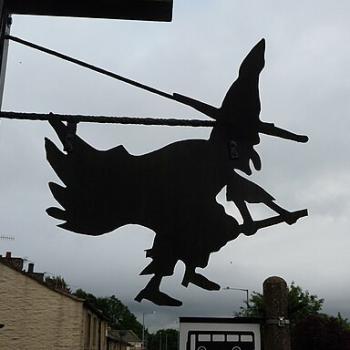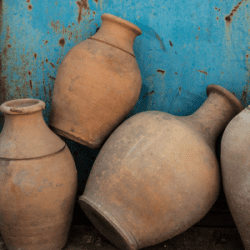At one point, a therapist suggested that I look at my relationship with substances, and I checked out a few Twelve Step meetings. I was really turned off by the Christian language, and didn't see myself in any of the people I heard speaking, so I abandoned those meetings. Finally, after one more binge, I woke up in the intensive care ward at my local hospital. A friend had found me stumbling in the middle of a major thoroughfare, incoherent, and brought me to the hospital. It was when I woke up from that incident that I knew that my life needed to change.
So I made two related commitments: one to my recovery from substance abuse, and another to my spirituality. I knew enough, at that point, to recognize that these two aspects of my life were inseparably related.
The Pagan in Recovery is based on my experiences trying to reconcile what is an essentially Christian program with my own Pagan faith. Most people coming into the rooms hear "The God of your understanding," and this is at least an attempt to be somewhat ecumenical or welcoming. But what most people don't realize is that Paganism isn't merely a group of people who choose to use a different word for "God." Where in the Abrahamic faiths of Judaism, Christianity, and Islam, the same God is worshiped with different names, Paganism looks at the entire concept of God, and our relationship with the Divine, in an entirely different way.
So I had to come to a decision—was I going to let the language that the Twelve Steps used get in the way of my recovery? I chose not to let that happen. I found a sponsor in the program, who, while Christian, was accepting of my spirituality. She encouraged me to work the program in a way that meant something to me. Recovery can't be a one-size-fits-all process, and The Pagan in Recovery attempts to present the Twelve Steps in a manner that is approachable to all people who practice a non-Christian faith.
What was the biggest challenge facing you in writing this book?
To me, the biggest challenge was to write a book that could be embraced by all Pagan paths. We are a very diverse group of people, many with some strongly held ideas. There are occasional tensions between us, which, while healthy, can still cause division at times. I wanted to write a book that any Pagan could pick up and feel as if it was their own. For that reason, the rituals, in the book are simply personal rituals, the language tends to be generic, not geared to any particular tradition. Doing that, while still being engaging was a bit of a challenge.
I can imagine. Believe me, I know how contentious our various communities can be. I can tell you, though, that those counselors and clients to whom I've recommended it have had nothing but positive feedback to offer. I think there's a real hunger for this type of book, a recognized need. Now you put your book out through Asphodel Press. What made you choose an independent publisher like Asphodel?
I had originally sent out the manuscript to a few publishers. Having not been published before, and not having a literary agent, it's not very easy to be published. I did hear back from one publisher, and was in the initial process of pitching the manuscript when someone suggested Asphodel. I wasn't entirely certain that this was the sort of book they were looking for, but I sent a copy of the manuscript to Raven. He seemed genuinely interested in the project, so I decided to work with Asphodel. It was an amazing experience.
You mention early in the book (quite accurately too, I think) that many Pagans have never bothered to seek out a relationship to Deity. Do you see a correlation between this and addiction across the board, this lack of engaged spiritual connection (to Gods, ancestors, etc.) and the prevalence of addiction in our culture?
I think that's true. In The Jaguar that Roams the Mind, Robert Tindall writes of an addiction treatment center in Peru called Takiwasi that has achieved a 67 percent success rate for those completing its program. One of the foundational principles of this program is that it looks at addiction as "a thwarted spiritual quest." I tend to agree with that.
Most everyone I know who has become addicted recalls a time when whatever it is that they are addicted to offered them some sort of relief or feeling—something which, for a moment, took them out of themselves. And for years, they chased that feeling. Life is complicated, and most of us need something that will help us make sense of it. We're trying to find something deeper, something beyond our selves.
Early on, we might start drinking and using to get along, to get outside our selves. Especially with psychedelics, we get some glimpses of something deep and meaningful. Even on the barstool, we come up with seemingly profound and meaningful insights. We chase those moments, but they remain elusive.





